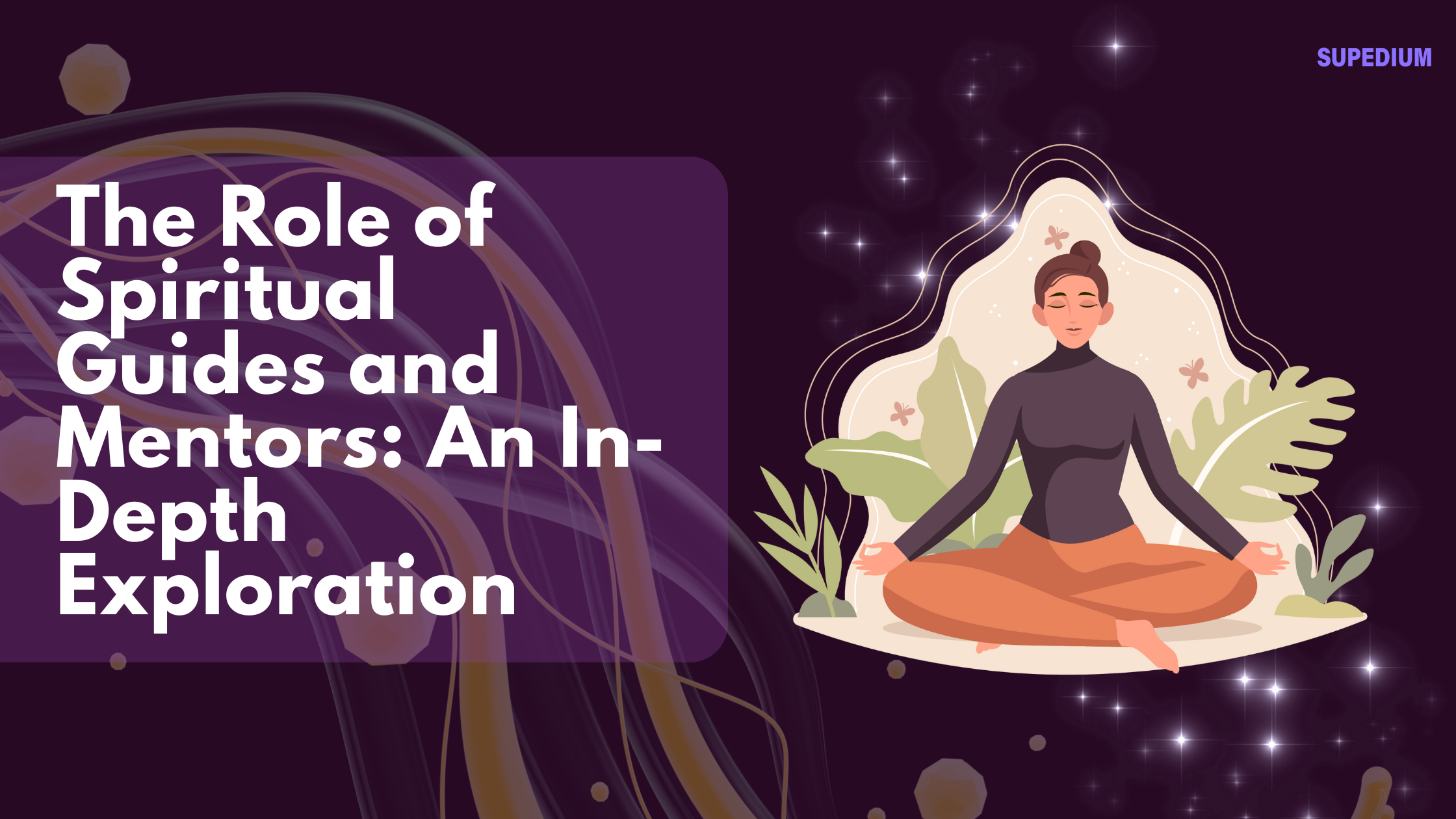Table of Contents
![]()
Introduction
Spiritual guides and mentors play pivotal roles in the lives of individuals seeking growth, purpose, and direction. Understanding their roles and contributions can provide valuable insights into personal and spiritual development. While the terms “spiritual guide” and “mentor” are often used interchangeably, they encompass different aspects of support and guidance. This article explores their historical context, functions, and impact, shedding light on their significance in both spiritual and secular contexts.
Historical and Cultural Perspectives
The concept of spiritual guidance has deep historical roots. Ancient traditions across the globe have recognized the value of spiritual guides, such as shamans, gurus, and wise elders, who offer wisdom and support. In various cultures, these guides played crucial roles in rituals, healing practices, and imparting sacred knowledge. For instance, in many Indigenous cultures, shamans act as intermediaries between the spiritual and physical worlds, guiding their communities through rituals and spiritual practices.
In contrast, contemporary contexts have expanded the notion of spiritual mentorship beyond traditional boundaries. Modern spiritual guides include life coaches with a spiritual focus and online influencers who share spiritual insights. These roles reflect a broader understanding of mentorship that integrates both personal and professional dimensions.
Types of Spiritual Guides and Mentors
Spiritual guides and mentors come in various forms, each serving unique purposes:
- Traditional Spiritual Guides:
- Religious Leaders: Priests, monks, imams, and rabbis provide religious and spiritual guidance based on established doctrines and practices. They often lead worship, offer counsel, and help interpret sacred texts.
- Spiritual Teachers and Shamans: These individuals, often found in indigenous or esoteric traditions, offer spiritual teachings, perform rituals, and provide healing practices.
- Contemporary Spiritual Mentors:
- Life Coaches with a Spiritual Focus: These mentors blend personal development strategies with spiritual principles, assisting clients in aligning their personal goals with their spiritual values.
- Online Spiritual Communities and Influencers: With the rise of digital platforms, spiritual guidance has increasingly moved online. Influencers and community leaders share wisdom, practices, and support through social media, blogs, and virtual workshops.
Functions and Roles of Spiritual Guides
Spiritual guides fulfill several key functions:
- Providing Wisdom and Knowledge:
- They share teachings and practices derived from spiritual traditions or personal insights, helping individuals understand and apply spiritual principles in their lives.
- By interpreting spiritual texts and traditions, they offer deeper insights into the meaning and application of spiritual teachings.
- Offering Emotional and Spiritual Support:
- Spiritual guides provide a listening ear and emotional support during times of distress, offering encouragement and reassurance.
- They assist individuals in navigating spiritual crises or periods of doubt, helping them find clarity and resilience.
- Facilitating Personal Growth and Development:
- Guides help individuals engage in spiritual practices such as meditation, prayer, or rituals that promote personal growth and self-awareness.
- They encourage self-reflection and transformation, helping individuals align their lives with their spiritual values.
Functions and Roles of Mentors
Mentors, while often overlapping with spiritual guides, have broader roles:
- Professional and Personal Development:
- Mentors provide career guidance, help set and achieve goals, and support skill development in various areas of life.
- They offer advice and feedback that aid in personal growth and professional advancement.
- Offering Feedback and Constructive Criticism:
- Effective mentors provide honest, constructive feedback, helping mentees navigate challenges and make informed decisions.
- They support problem-solving and decision-making processes, contributing to the mentee’s growth and success.
- Building Confidence and Self-Efficacy:
- Mentors encourage and motivate mentees, helping them build confidence and self-efficacy.
- They provide valuable networks and opportunities, facilitating personal and professional connections.
The Relationship Dynamics
The relationship between a spiritual guide or mentor and their mentee is crucial for its effectiveness:
- Building a Healthy Mentor-Mentee Relationship:
- Trust and open communication are foundational for a successful relationship. Clear expectations and mutual respect are essential.
- Setting boundaries helps maintain a professional and supportive relationship, preventing potential conflicts.
- The Impact of Effective Guidance:
- Positive outcomes from effective mentorship include personal growth, career success, and spiritual development. Success stories often highlight the transformative impact of mentorship.
- Challenges such as misalignment of expectations or conflicts may arise, but they can be managed with open communication and mutual understanding.
- Ethical Considerations:
- Maintaining professional and personal boundaries is crucial to prevent misuse of power and ensure ethical interactions.
- Navigating power dynamics and dependency is important for maintaining a balanced and supportive relationship.
The Impact of Spiritual Guides and Mentors
The influence of spiritual guides and mentors extends beyond individual relationships:
- On Individual Growth:
- Psychological and emotional benefits include improved well-being, increased self-awareness, and greater resilience.
- Spiritual and personal transformation often results from the guidance and support provided by mentors and spiritual guides.
- On Communities and Societies:
- Spiritual guides and mentors contribute to community cohesion by fostering shared values and providing support networks.
- They influence societal values and ethical standards through their teachings and guidance.
- Case Studies and Examples:
- Historical figures such as Socrates and his disciples, or Mahatma Gandhi and his mentors, exemplify the profound impact of mentorship.
- Modern examples, including successful life coaches and spiritual leaders, demonstrate the continuing relevance and impact of effective mentoring.
Challenges and Criticisms
Despite their benefits, spiritual guides and mentors face challenges and criticisms:
- Common Challenges in Mentoring Relationships:
- Misalignment of expectations can lead to dissatisfaction or conflict. Clear communication and understanding are essential to address these issues.
- Dependency and power imbalances may arise, requiring careful management to maintain a healthy dynamic.
- Criticisms of Spiritual Guidance:
- Concerns about manipulation or control highlight the need for authenticity and integrity in spiritual guidance.
- Issues of credibility and authenticity are important to address, ensuring that guides and mentors provide genuine and beneficial support.
- Navigating Conflicts and Finding Resolution:
- Addressing conflicts involves open dialogue and a willingness to adapt and find solutions that benefit both parties.
- Seeking resolution may involve reevaluating expectations, adjusting boundaries, or finding alternative forms of support.
Conclusion
The roles of spiritual guides and mentors are multifaceted and influential. They play a crucial part in personal and spiritual development, offering wisdom, support, and guidance. Understanding their functions, impacts, and challenges helps individuals navigate their own paths with greater clarity and purpose. As both traditional and contemporary forms of mentorship evolve, the enduring relevance of these roles in fostering personal and collective growth remains evident.
Share This





Be the first to comment